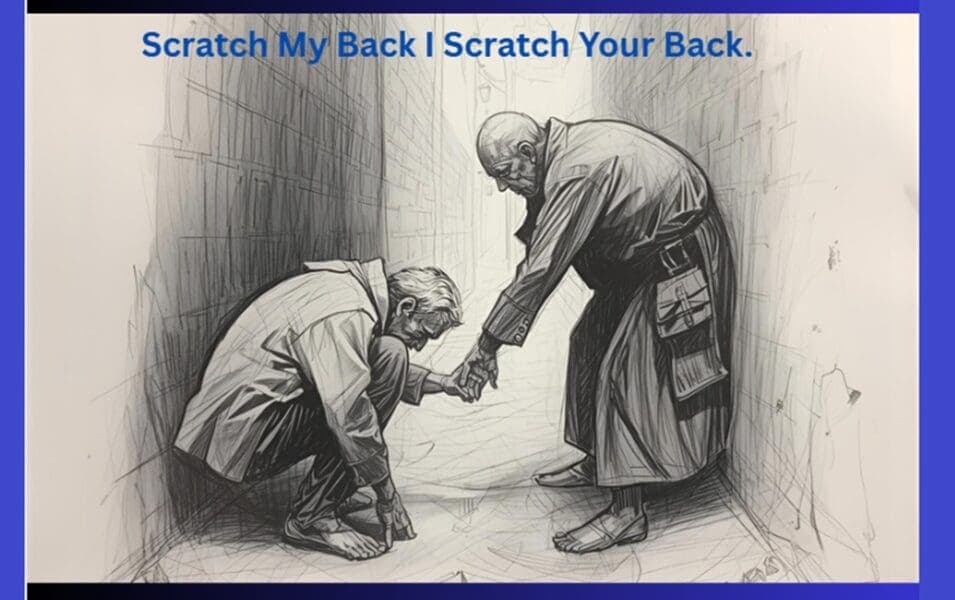We're loading the full news article for you. This includes the article content, images, author information, and related articles.
Sociologists and mental health experts are raising concerns that persistent economic pressures and rapid social change are eroding traditional community bonds, leading to a rise in utilitarian 'scratch-my-back' relationships with significant consequences for national well-being.

NAIROBI, KENYA – A growing body of evidence and expert analysis suggests that Kenya is experiencing a significant shift in the nature of its social fabric, with traditional, community-oriented relationships increasingly being replaced by transactional ones, particularly in urban centres. This trend, colloquially described as a 'scratch my back, I'll scratch yours' mentality, is being driven by a combination of severe economic pressures, rapid urbanization, and evolving social norms, according to sociologists, economists, and mental health professionals.
This shift away from relationships based on kinship and mutual support towards those based on utility and personal gain carries profound implications for social cohesion and public mental health. Experts warn that if left unaddressed, the erosion of genuine social connections could exacerbate issues of isolation, anxiety, and depression across the nation.
Persistent economic hardship is identified as a primary catalyst for this societal change. With high costs of living and fluctuating inflation rates for essential goods, many Kenyans are forced to view their social networks through a lens of economic survival. The Kenya National Bureau of Statistics (KNBS) tracks the Consumer Price Index (CPI), which measures the general price level of goods and services. While inflation rates have seen periods of easing, the overall cost of essentials like food, transport, and housing remains a significant burden on household budgets.
This economic instability compels individuals to prioritize relationships that offer tangible benefits, such as financial assistance, career opportunities, or other material advantages. Research on transactional relationships in Kenya, particularly among youth, has historically focused on sexual exchanges for economic resources but the underlying principles are now seen as broadening across general social interactions. Studies have shown that economic vulnerability often impacts decisions within relationships, increasing the likelihood of exchanges for material support.
The migration from rural, often mono-ethnic communities to heterogeneous urban centres like Nairobi is another critical factor. As individuals move to cities in search of opportunities, they often leave behind the strong, intergenerational support systems of their villages and extended families. The Department of Sociology at the University of Nairobi defines its field as the "Scientific Study of Social relationships," and its work often analyzes the dynamics that govern human societies as they modernize and urbanize.
In the relative anonymity of a large city, relationships can become more transient and functional. This environment, coupled with the fast-paced and competitive nature of urban life, can lead to increased social isolation. Studies have noted a rise in mental illnesses in urbanizing nations like Kenya, with a significant treatment gap for mental health disorders. The pressure and isolation common in urban areas can contribute to mood disorders and anxiety, further straining social connections.
The consequences of this shift are not merely social but have significant public health implications. A growing disconnect between individuals and their communities is linked to a rise in mental health challenges. Research conducted in Kenya's informal settlements during the COVID-19 pandemic highlighted how social isolation and economic shocks heightened levels of anxiety and depression. Promoting social support networks was identified as essential for mitigating these negative impacts.
Global health bodies have increasingly recognized loneliness as a serious public health concern, with negative outcomes that rival risk factors like smoking and obesity. In Kenya, there is a growing awareness of the need for mental health interventions, yet stigma and a shortage of professionals remain significant barriers. Experts argue that fostering community resilience and genuine social connections are crucial preventative measures.
The rise of transactionalism also reflects broader changes in cultural and social norms, partly influenced by social media and globalized culture. Younger generations, such as Gen Z, are reported to be reshaping social and workplace norms, often prioritizing a clearer separation between their personal and professional lives, which can sometimes reduce traditional workplace friendships. These evolving expectations intersect with economic realities to create a complex social landscape.
Addressing this trend requires a multi-faceted approach. According to the National Cohesion and Integration Commission (NCIC), factors like youth unemployment are significant threats to social cohesion. Experts suggest that interventions must focus on both the root economic causes and the social consequences. This includes implementing robust social protection programs to cushion citizens from economic shocks, which studies have shown can help preserve social cohesion. Furthermore, there is a need for community-based mental health support and initiatives that actively foster social connection and belonging in an increasingly fragmented world.
Keep the conversation in one place—threads here stay linked to the story and in the forums.
Sign in to start a discussion
Start a conversation about this story and keep it linked here.
Other hot threads
E-sports and Gaming Community in Kenya
Active 9 months ago
The Role of Technology in Modern Agriculture (AgriTech)
Active 9 months ago
Popular Recreational Activities Across Counties
Active 9 months ago
Investing in Youth Sports Development Programs
Active 9 months ago